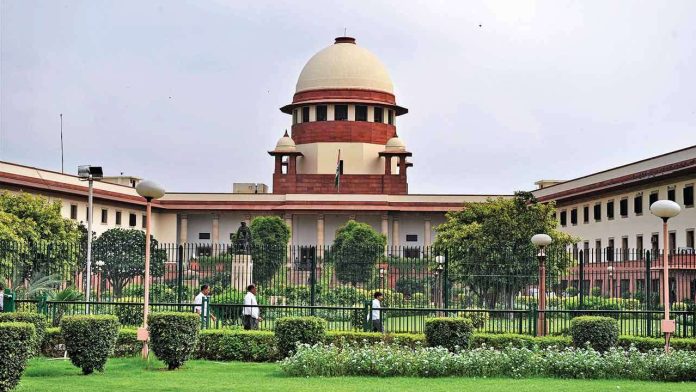The Supreme Court upheld the constitutionality of the Uttar Pradesh Board of Madrasa Education Act of 2004 on Tuesday, affirming that it does not violate secular principles.
Previously, on March 22, Allahabad High Cour t had deemed the Act “unconstitutional” and in violation of secularism, instructing the state government to integrate madrasa students into the mainstream education system. However, on April 5, a bench led by the Chief Justice of India granted relief to approximately 1.7 million madrasa students by suspending the High Court’s ruling, thereby reinstating the UP Madrasa Education Act, 2004.
During the proceedings, the CJI noted that secularism is about “live and let live,” adding that the regulation of madrasas aligns with national interests and reflects the country’s longstanding composite culture. The Uttar Pradesh government also argued that the Allahabad High Court should not have invalidated the entire Act.
Markazi Taleemi Board (MTB) Secretary Syed Tanveer Ahmed welcomed the Supreme Court’s landmark decision, overturning the Allahabad High Court’s earlier ruling. He expressed gratitude, emphasising that the decision safeguards educational rights for minority communities in UP.
“The Supreme Court’s decision marks a significant milestone in safeguarding the educational rights of minority communities in Uttar Pradesh,” said Syed Tanveer.
“It not only protects the rights of madrasa students to pursue education, but also affirms the constitutional principles that protect religious minorities and their educational institutions. This decision reinforces the state’s positive responsibility to ensure these institutions can provide both religious and secular education without compromising their identity,” he opined.
MTB Secretary also commended the Supreme Court bench, which included Chief Justice DY Chandrachud and Justices JB Pardiwala and Manoj Mishra, for highlighting that the inclusion of religious education within a legislative framework does not inherently violate secularism. He added that the Court’s interpretation ensures madrasa students can pursue quality education while preserving their cultural and religious identities.
He called this judgment a “beacon of hope” for minority educational institutions across India, as it protects their role in society while honouring cultural preservation and providing educational opportunities for students.
The Indian Muslims for Civil Rights (IMCR) also celebrated the ruling, calling it a “victory for secularism, the Indian Constitution, and communal harmony.”
IMCR Chair and former MP Mohd Adeeb stated that the ruling upholds the “doctrine of basic features of the Constitution of India” established in the landmark Kesavananda Bharati and Minerva Mills cases. The IMCR pledged continued advocacy for secularism and minority rights and urged peace-loving citizens to remain united in the fight for constitutional rights.




